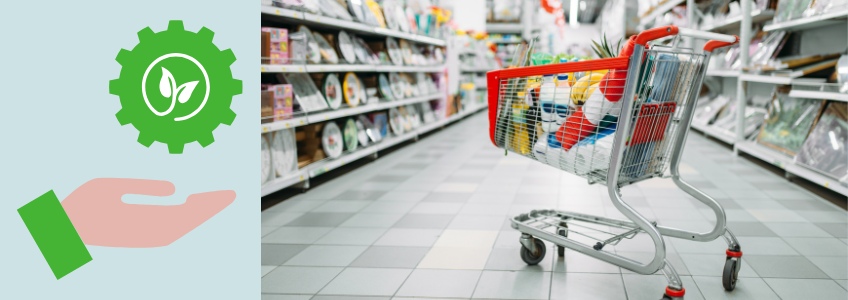
Introduction
The Fast-Moving Consumer Goods (FMCG) sector, encompassing everyday products from food and beverages to personal care items, faces increasing pressure to adopt sustainable practices. Consumers are becoming more eco-conscious, demanding environmentally responsible products and packaging.
Simultaneously, businesses are realizing that sustainability isn’t just a moral imperative; it is a smart business strategy. Implementing lean principles to reduce waste and optimize resource utilization can significantly lower costs while minimizing environmental impact.
This blog explores how FMCG companies can embrace sustainability through lean strategies, creating a win-win scenario for both the planet and their bottom line.
The Necessity of Sustainable Practices in FMCG
The FMCG industry’s sheer volume and reach contribute significantly to global environmental challenges. From resource depletion and greenhouse gas emissions to plastic pollution and landfill waste, the impact is substantial.
- Packaging Waste: A significant portion of FMCG products relies on packaging. Much of this gradually ends up in landfills or polluting oceans. Plastic packaging waste is projected to quadruple by 2050 if current trends continue.
- Resource Consumption: The production and distribution of FMCG products require vast amounts of energy. These products also require water and raw materials, putting strain on finite resources.
- Consumer Demand: Studies show that a large percentage of consumers are willing to pay more for sustainable goods. This indicates a growing preference for eco-friendly brands.
These factors highlight the urgent need for FMCG companies to integrate sustainability into their core operations.
Lean Principles: A Framework for Sustainable FMCG

Lean manufacturing, traditionally focused on eliminating waste in production processes. It offers a valuable framework for achieving sustainability goals. Applying lean principles can help FMCG companies in identifying and eliminating inefficiencies that contribute to both environmental harm and financial losses.
Key lean strategies for sustainable FMCG
- Waste Reduction: Identifying and minimizing all forms of waste, including material, energy, water, and transportation waste. This can involve optimizing packaging design, implementing closed-loop recycling systems, and improving production efficiency.
- Value Stream Mapping: Analyzing the entire product lifecycle, from raw material sourcing to product disposal. This helps identify areas where waste can be reduced and value can be added, while also highlighting opportunities to reduce environmental impact.
- Continuous Improvement (Kaizen): Fostering a culture of ongoing improvement, where employees are empowered to identify and implement small changes that can lead to significant environmental and cost benefits.
- 5S Methodology: Implementing a workplace organization system that focuses on Sort, Set in Order, Shine, Standardize, and Sustain. This helps reduce waste, improve efficiency, and create a safer working environment.
Benefits of Lean Sustainability in FMCG

Adopting lean strategies for sustainability in FMCG offers a multitude of benefits.
- Cost Savings: Reducing waste and optimizing resource utilization can lead to significant cost reductions in areas such as raw materials, energy, water, and waste disposal.
- Enhanced Brand Reputation: Consumers are increasingly drawn to sustainable brands, so implementing eco-friendly practices can enhance brand reputation and attract new customers.
- Improved Operational Efficiency: Lean principles streamline operations, improve productivity, and reduce lead times.
- Reduced Environmental Impact: Minimizing waste and resource consumption contributes to a healthier planet and helps mitigate climate change.
- Increased Stakeholder Value: Demonstrating a commitment to sustainability can enhance relationships with investors, suppliers, and other stakeholders.
Implementing Lean Strategies for Sustainability: Practical Examples
Several FMCG companies have successfully implemented lean strategies to achieve sustainability goals.
- Packaging Optimization: Reducing packaging materials by using recycled or lightweight materials while ensuring product integrity.
- Water and Energy Efficiency: Implementing process optimization techniques to reduce water and energy usage in manufacturing facilities.
- Recycling Programs: Investing in recycling initiatives and working with partners to improve collection and processing rates.
Conclusion: Embracing a Sustainable Future
Sustainability is no longer a choice for FMCG companies; it is a necessity. By embracing lean principles and implementing practical strategies to reduce waste and optimize resource utilization, FMCG companies can achieve significant environmental and financial benefits.
This not only contributes to a healthier planet but also strengthens competitive advantage and ensures long-term business success. The future of FMCG lies in adopting a sustainable, lean approach that creates value for both businesses and the environment.
If you are interested to achieve similar success stories, write to us!
